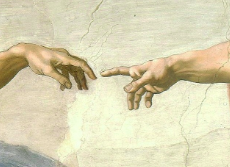Why Christianity Matters
Christianity matters in the modern world because it uniquely affirms that human life has intrinsic value. This value does not come from status, achievement, wealth, or social usefulness but from a deeper foundation: every human being is created in the image of God (Genesis 1:26–27).
This biblical principle is the only true ground for equality. If worth depends on shifting social categories, then some will always be “more valuable” than others. But if worth is rooted in God’s creation, then all stand equally dignified before Him.






Eternal Consequences Reveal Eternal Worth
One of the most misunderstood doctrines of Christianity is eternal punishment. To some, it appears harsh or immoral. Yet, in a deeper sense, it reveals just how immeasurably valuable human beings are. If the destiny of man stretches into eternity—either in everlasting life or in everlasting judgment—then human life is not fleeting or disposable but of eternal significance.
The fact that sin carries eternal consequences presupposes that the sinner himself is of eternal worth. Thus, whether in salvation or judgment, God’s dealings with humanity reflect the immeasurable dignity of those created in His image.
Equality Movements: Echoes of the Biblical View
Modern society cries out for equality and individual worth. Strikingly, even those who deny God often argue as if these truths are self-evident. Yet where does this conviction come from? History shows that the idea of intrinsic human worth is not a social discovery but a biblical inheritance.
From the earliest pages of Scripture, the individual is seen as valuable in God’s eyes—distinct, known, and loved. This focus on the person, rather than on collective identity, lies at the heart of biblical teaching. When society calls for equality, it unknowingly borrows from the Christian worldview that has preached this truth since creation.
Justice and Grace: Two Witnesses to Life’s Value
Even debates about justice reflect this principle. For example, capital punishment in Genesis 9:6 was given to show the sacredness of life: “Whoever sheds man’s blood, by man his blood shall be shed, for in the image of God He made man.” Taking life unjustly is so serious because life itself is holy.
On the other hand, those who oppose capital punishment argue that even the life of the guilty must be preserved, since the victim cannot be restored. Strikingly, both sides—though opposed—reveal a common conviction: human life cannot be treated as cheap. Both arguments rest on a biblical logic, whether acknowledged or not.
Life’s Value from Conception
The Bible teaches that life is valuable from its earliest moment. God formed us in the womb and knew us before birth (Psalm 139:13–16; Jeremiah 1:5). Parents intuitively recognize this when they rejoice over new life at conception, not only at birth. This natural response testifies that human worth is not assigned by society or law but is inherent, given by God from the beginning.
The Bible’s Unique Witness
No book values human life more than the Bible. Humanity is described as the center of creation, prepared for before the first man and woman were made. Scripture consistently elevates human life above material wealth, power, or possessions. In the kingdom of God, true equality reigns: Jew or Gentile, slave or free, male or female—all are one in Christ Jesus (Galatians 3:28).
Conclusion
If society is truly to achieve equality and honor the worth of every individual, it must return to the biblical foundation that first gave these truths to the world. The Christian principle of intrinsic value—rooted in creation, revealed in justice, fulfilled in grace—is the only unshakable ground for human dignity.
Without God, value must be assigned by human judgment, which always produces inequality. With God, value is acknowledged as given, eternal, and equal. Only in His kingdom do we find the true equality and worth that society longs for.
Sault Ste. Marie

